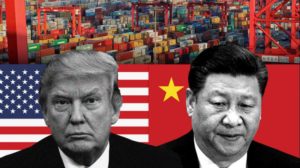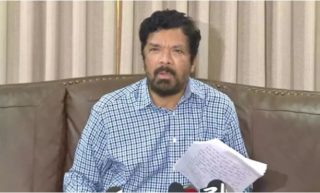 Beijing: Treasury Secretary Steven Mnuchin said the US had “productive” talks with China over their trade dispute after negotiations in Beijing ended Friday with no sign that any concrete progress had been made.
Beijing: Treasury Secretary Steven Mnuchin said the US had “productive” talks with China over their trade dispute after negotiations in Beijing ended Friday with no sign that any concrete progress had been made.
Top officials from the world’s two biggest economies had held two days of talks, hoping to at least create sufficient goodwill to stave off an escalation of their tariff war.
In a tweet, Mnuchin said after the talks ended that he and US Trade Representative Robert Lighthizer had “productive meetings with China’s Vice Premier Liu He,” Beijing’s top economic official.
The talks closed around mid-day on Friday and the delegations parted with nothing announced. Attention then shifted to a planned meeting later Friday between the US delegation and Chinese President Xi Jinping, with markets watching for signals that the world’s two economic superpowers may look to maintain a truce on damaging reciprocal tariffs.
The high-level meetings began Thursday after President Donald Trump suggested that if talks in Beijing went well he may extend his March 1 deadline for China to make significant concessions on trade before resuming the tariff onslaught.
Trump’s economic advisor Larry Kudlow had earlier said Xi’s willingness to meet with the US officials was a “very good sign.” Kudlow also said “the vibe is good,” in characterising the talks, but said there was “no decision” yet on extending Trump’s tariff truce.
After Trump suggested he may put off plans to more than double tariffs on USD 200 billion in Chinese imports after March 1, Bloomberg News reported that a 60-day postponement was being considered to allow more time for negotiations.
Multiple reports had indicated that little if any progress was made in the Chinese capital toward US demands, with the Wall Street Journal and Bloomberg quoting anonymous sources as saying the two sides failed to narrow the gap on key issues.
Washington accuses Beijing of a range of unfair trade practices including myriad barriers against foreign access to its market, subsidies that favour Chinese companies, rampant theft of intellectual property, and the requirement that foreign firms transfer proprietary technology to their partners in China as a condition of doing business.
Mnuchin and Lighthizer returned to their hotel after the talks ended but did not speak to the media. Beijing and Washington have already imposed duties on more than $360 billion in two-way trade, which are weighing on their manufacturing sectors and have shaken global financial markets.
Expectations for an accord have being growing as China faces pressure from slowing economic growth, and as the market turmoil rattles Trump and his economic advisors.
But many China experts say Beijing’s Communist Party rulers are unlikely to make significant changes to industrial policies that have abetted the country’s economic rise without a long and tough fight. In December, Trump had postponed plans to sharply hike tariffs, setting the March 1 ultimatum for Chinese concessions.
Trump has said that any eventual trade deal would need to be sealed personally between him and Xi in a summit meeting.























